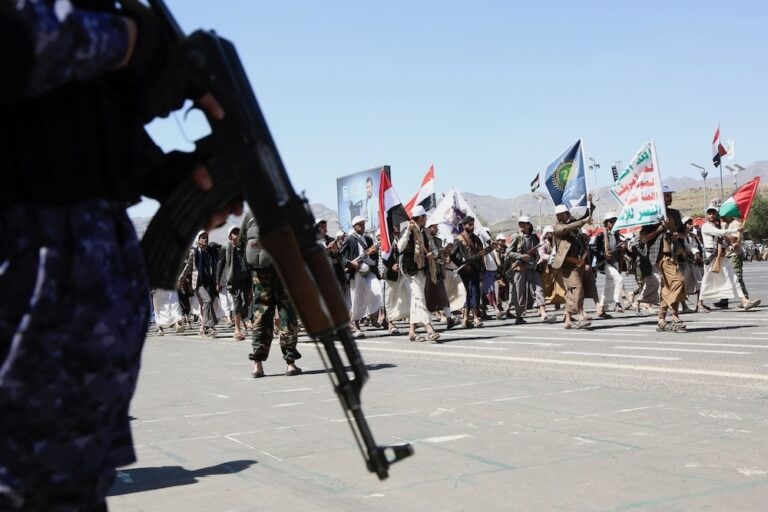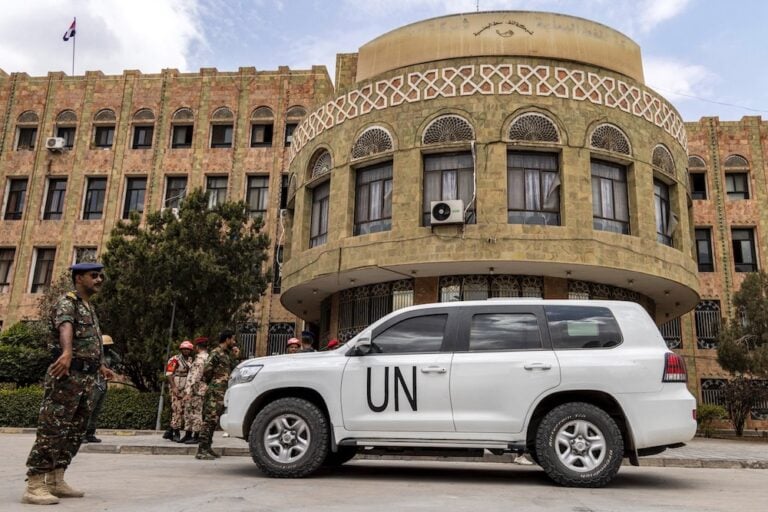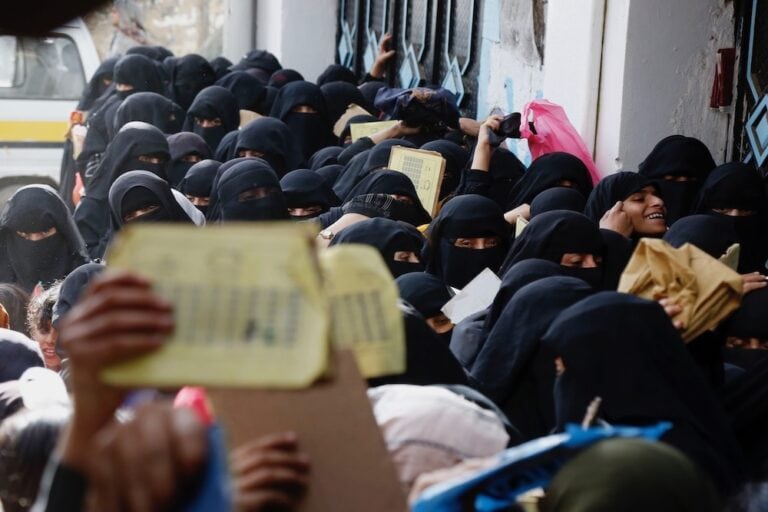"We were walking toward the military post, just chanting slogans and holding banners, and the soldiers just started shooting at us," one of the protesters said.
(Human Rights Watch/IFEX) – Sanaa, March 10, 2011 – The Yemeni authorities should immediately investigate the apparent killing of two protesters by soldiers during a peaceful protest on March 4, 2011, near the town of Harf Sufyan, Human Rights Watch said today. Three protesters told Human Rights Watch that soldiers at a military post shot and killed the men as thousands of anti-government protesters marched toward the town.
Yemen’s Defense Ministry claimed that no march took place and that rebels from northern Yemen known as Huthis attacked the military post and wounded four soldiers. Over the past seven years, the Huthis – a Zaidi Shia revivalist movement – have battled the military. The Huthis have strong support among the population in the town of Harf Sufyan and the surrounding district of the same name.
“We have credible allegations that thousands of peaceful protesters faced live fire by Yemen’s military outside Harf Sufyan and that two unarmed civilians paid with their lives,” said Joe Stork, deputy Middle East director at Human Rights Watch. “Simply dismissing these reports as Huthi rebel propaganda is not good enough, and authorities should immediately investigate what happened there on March 4.”
The three protesters interviewed separately by Human Rights Watch said that on March 2 and 3, Huthi officials had asked people from various parts of the district to join a peaceful protest on March 4 calling for President Ali Abdullah Saleh to resign. Organizers specifically called on protesters to leave their personal weapons at home.
The people interviewed said that thousands of unarmed protesters from various parts of Harf Sufyan district responded. At around 9 a.m. on March 4, they walked or drove from al-Hama village to the edge of the town of Harf Sufyan, where they were stopped at around 11:30 a.m. at the al-Timthila military post.
All three witnesses said that without warning, soldiers inside the post opened fire with medium-sized machine guns, shooting in the air and at the protesters for several minutes. The witnesses said that after years of war in their region, they could tell from the sound of the guns that they were “12-7” and “Czech” machine guns, which fired single shots as well as sustained volleys of bullets.
“We were walking toward the military post, just chanting slogans and holding banners, and the soldiers just started shooting at us,” one of the protesters said. “We were peaceful and had no weapons. There was no reason.”
The witnesses said that four people were killed and about 10 were injured. However, a doctor from the Nasser clinic in al-Hama village, who says he saw the protesters leave al-Hama earlier that day, could only confirm that two men died from gunshot wounds. The doctor said other protesters had brought them to the clinic and told him that the military had shot at the protesters at the Tinthila military post. The doctor identified the two dead men as Jalal Ahmed Abu Asa, 25, who had died instantly, and Ali Nasser Haider, 70, who died on arrival.
The doctor also told Human Rights Watch that he had treated one injured protester, who had been shot in the face and who told the doctor that soldiers had opened fire on the protesters and that he had been hit. The bullet entered his right jaw and exited through his nose, the doctor said. His condition was stable.
The protesters said that after the shooting had stopped and the dead and injured had been evacuated, the military allowed them to continue their march to the center of Harf Sufyan.
The witnesses and the doctor said that the dead were buried the following day in Harf Sufyan’s Shuhada cemetery and that thousands of people attended their funeral.
“Over the past weeks, thousands of peaceful demonstrators in Yemen demanding the departure of President Saleh have faced violence by pro-government protesters who are at best ignored and at worst encouraged by the authorities,” Stork said. “The people of Harf Sufyan have a right to know why the army decided to attack these protesters that day.”


